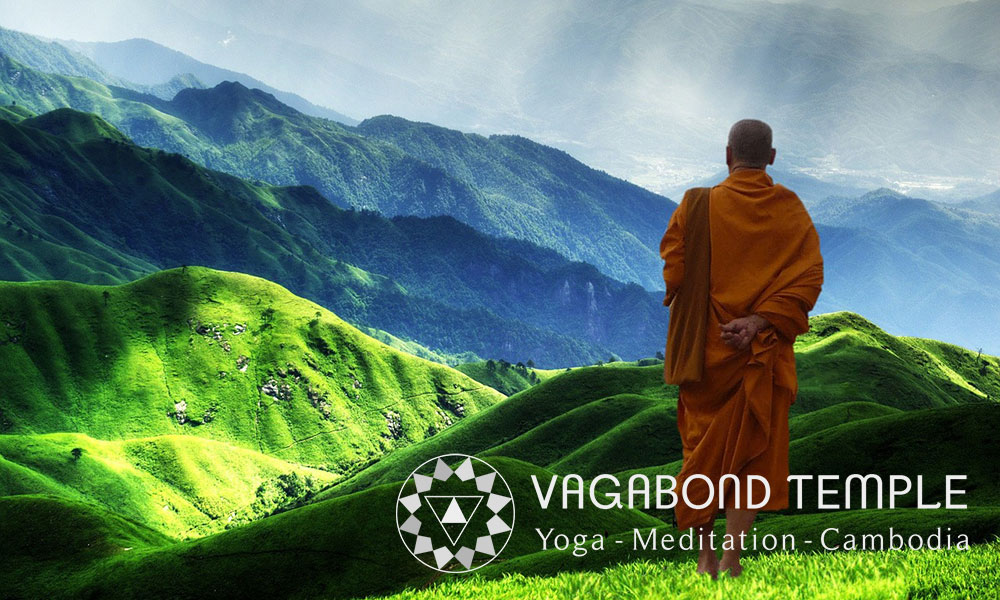Meditation Is Not Enough: How To Make Every Moment Count

When embarking on the spiritual path, sometimes we make the mistake of separating our “ordinary” and “spiritual” lives. This is an easy mistake to make: sitting in the lotus position and chanting “OM” certainly seems a lot more spiritual than being packed into a crowded train on the way to work! However, unless we are to live in a cave, it is in the ordinary daily situations where the most important work is to be done. This has been well understood by many spiritual masters over the centuries, this article draws on the work of one: the 19th Century Tibetan Buddhist Teacher, wandering vagabond and compassionate soul, Patrul Rinpoche. Devoting his life to the study of Buddhist philosophy and the service of others, he came to understand that everything we experience is a spiritual exercise. He shared his insights in a beautifully concise and humble manner. In his work, “The Crucial Points Of Practice” he states:
“Gaining certainty in one’s realization comes with gaining skill in how to set thoughts free just as they’re arising.”
Notice that Patrul Rinpoche talks of setting thoughts free rather than getting rid of them. Anybody who has examined the contents of their mind will have realised how powerful thoughts can be, and how little control we have over them. We cannot choose what thought comes into our head (try not to think of an elephant) but we can choose to engage with the thought or set it free. If we try to fight with a thought by replacing it with another one, we enter a battle that cannot be won, sending us into a spiral of more and more thoughts. So the trick is to simply allow the thought to come, note it and let it pass.
Patrul Rinpoche also points out that this is a skill – so we can improve with practice. If we do 10 press-ups every day, soon we will be able to do 20 and so on. In the same way, we can keep improving our ability to let our thoughts go without engaging in them. The skill is to liberate the thought just as it arises, otherwise we will become emotionally involved with it and it will be practically impossible to let go of.
“Focusing wandering mind through calm-state meditation may muffle negative mental states for a while, but as soon as circumstances change, ordinary discursive thoughts will just rear up again”
Here Patrul Rinpoche points out the limitations of meditation. We can enter a deep and blissful state, fully absorbed in our object of meditation. But on the drive home from the meditation centre, somebody cuts in front of us and we become furious. So it is in these situations that the real work is needed, it is in our daily lives where we must practice our skill of letting the thoughts go.
“Like ripples on water, ordinary discursive thoughts (wanting this, not wanting that) pop up, all of a sudden. But once you’ve learned how to liberate thoughts just as they arise, they cannot take hold, and so they vanish. This is a vital point that must be understood.”
In this poetic way he shows that thoughts just naturally appear (they pop up whether we like it or not). Again he stresses it is crucial to act immediately, “just as they arise.”. Whenever a thought comes we have a choice, we can engage with it or let it go. When we engage with a thought without question we are like a puppet – the thought is pulling our strings and we are not in control. However when we notice the thought, we then can exercise free choice.
“Wanting this, not wanting that” shows the thoughts that pop us relate to our desires and aversions. Seeing something we want, or something we want to get rid of, causes these thoughts to pop into our head, and if we engage with them they will carry us away. If somebody upsets us we may be tempted to replay what happened in our head, getting increasingly angry. If there is something we desire, we may daydream about it. To simply notice the thought and let it go is not so easy, as some thoughts can really seem to demand our engagement. That is why we need to practice.
One way to develop the skill of liberating thoughts as they arise is through meditation. If you have practiced mindfulness meditation you will have learnt that the practice is to notice when a thought comes then return to the breath (or whatever your meditation object is). You will have also learnt how challenging this simple practice is! However there is improvement as we continue to practice. As meditation teaches us to be more aware of our thoughts, we will be able to apply this to our daily lives.
But why do we need to liberate our thoughts if we are not in meditation? Surely we need to make plans and make sense of situations. Try planning a holiday without a single thought – will you just turn up at the airport with no luggage and choose a flight at random? Of course we need to think, but our thoughts can bring us immense suffering if we are not in control of them. As stated, if our thoughts control us we are not free. We need to exercise the power to say, “I’ll think about this later” and remain present when a thought pops up. A calmer mind is generally a happier mind, and research has shown the periods of mental silence bring many mental health benefits – after some practice, the mind will actually prefer the silent periods to the raging torrent of thoughts.
While freedom from troublesome thoughts can bring us much peace, there is a much deeper aspect to this practice. The thoughts of things we want or things we do not want, pull us out of the moment, away from reality and in to our self-created delusions. We are much more than just our thoughts, but the thoughts are so powerful they can make us forget this. If we are thinking about what we want to happen (getting this, getting rid of that) we miss out on what is actually happening right now – the present moment.
“Therefore, the most important point about view, meditation, and action, which brings about the confidence of realization, boils down to mastery of this way of self-liberating [thoughts just as they arise]. Applying this in all circumstances of your life, keep bringing everything onto the path toward realization.”
Here Patrul Rinpoche explains just how essential this skill of liberating thoughts is, it is necessary to bring about realization (the ultimate aim of all spiritual efforts). Sometimes we see challenging experiences as obstacles to our spiritual journey but really whatever happens is an opportunity to practice. All of desires, all of our fears, they can be brought into the path and used as an opportunity for spiritual growth if we practice liberating thoughts as they arise.
“Even though I myself have not yet mastered this, inspired by the words of the omniscient master, the very Buddha, I have written down these words.”
This reveals something of Patrul Rinpoche’s humble character and that, even for an enlightened master, this practice is not easy! It is not that we should expect to be able to catch every single thought and never be carried away, it is more like we should take inspiration from the Buddha and strive to follow his example as best we can. The Crucial Points of Practice ends with:
“Take these words to heart, since this is the most crucial, essential point of practice.”
The power of this crucial and essential practice is to be understood with the heart, not the mind. The mind can easily get carried off into endless thoughts, but the heart stays present.
So we hope that Patrul Rinponche’s words have impressed on you just how important this practice is. Of course practices like meditation are beneficial, but it is in the everyday life where the most powerful work can be done, so remember that everything you experience is an opportunity!



